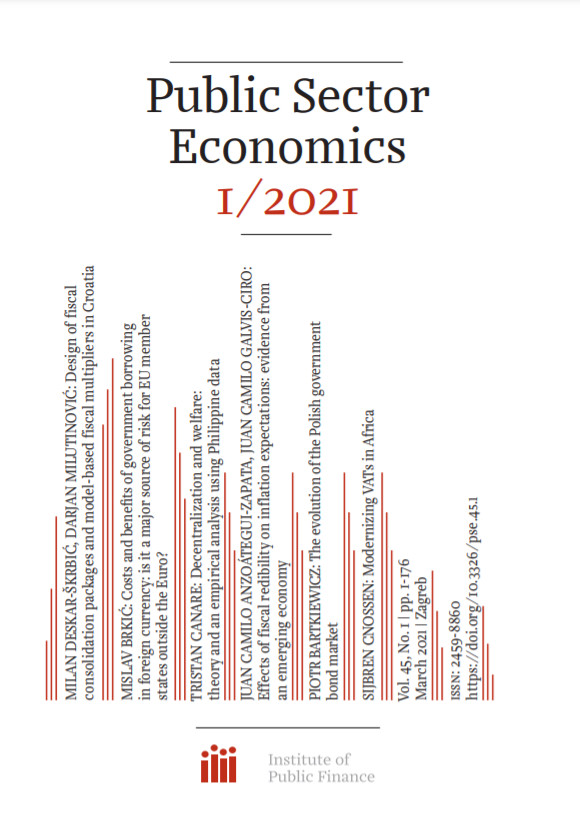Costs and benefits of government borrowing in foreign currency: is it a major source of risk for EU member states outside the Euro?
DOI:
https://doi.org/10.3326/pse.45.1.2Keywords:
foreign currency, government debt, international reserves, debt crisis, dollarizationAbstract
This paper discusses the costs and benefits of government borrowing in foreign currency. In addition to the main costs, such as increased exposure of public finances to currency risk and rollover risk, and limited capacity to respond to financial crisis, this paper identifies two benefits of foreign currency borrowing that are most evident in emerging market countries. The paper also explores to what extent governments of non-euro area EU member states rely on foreign currency borrowing. The analysis suggests that public finances of these countries are not heavily exposed to currency risk. Exceptions to this are Bulgaria and Croatia, whose government debt consists mainly of euro-denominated liabilities, and which also stand out with high loan and deposit euroization. It is therefore not surprising that Bulgaria and Croatia are the first among the remaining non-euro area EU member states to take concrete steps towards the introduction of the euro.
Additional Files
Published
How to Cite
Issue
Section
License
Copyright (c) 2021 Mislav Brkić

This work is licensed under a Creative Commons Attribution-NonCommercial 4.0 International License.









